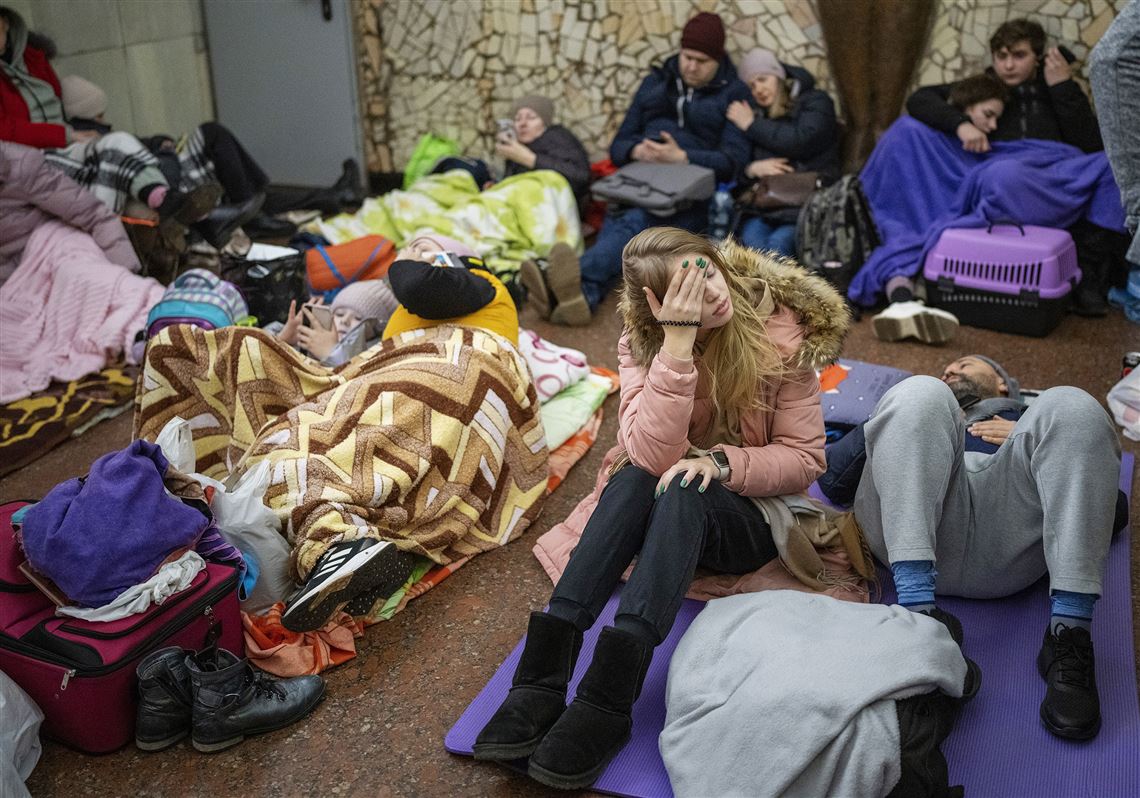The Precious, Fragile Gift of Freedom | Pittsburgh Post-Gazette
New opinion piece in the Pittsburgh Post-Gazette. It discusses what we can learn from intellectual leaders and academics in both Ukraine and Afghanistan.
I published a new opinion piece in the Pittsburgh Post-Gazette. It discusses what we can learn from intellectual leaders and academics in both Ukraine and Afghanistan.

Full text of the article here:
As Russia enters Ukraine, its military force threatens to kill thousands. President Vladimir Putin seems determined to destroy a vibrant society that has come into its own over the past 30 years. Since the 2014 Revolution of Dignity — or, as Ukrainians call it, the Maidan Revolution — which overthrew a Russian-backed government, citizens of Ukraine have enjoyed the fruits of political and economic freedom.
The post-2014 era in Ukraine was imperfect. It was marred by corruption and oligarchs. Politicians promised reforms that never happened. Yet, there has been a sense among Ukrainians that they were part of a shared project. They did not always agree on a path forward, but they knew they were in it together.
This had been an era of renewal during which Ukrainians enthusiastically embraced new liberties and ran with them into the future. They built; they created; they invested.
I first visited Ukraine 30 years ago, just months after independence from the Soviet Union. I have seen how much it has changed.
As the world now watches in horror, there are eerie parallels to what happened just six months before in Afghanistan. We understand from Afghanistan just how quickly freedoms can be stamped out, an entire society transformed. In the snap of a finger, Afghanistan transformed from one of the most vibrant civil societies in the region to one of the darkest.
Ukraine is facing a similar threat today. We know what will happen if Mr. Putin is successful. We have seen this playbook before, in places like Belarus and of course Russia itself. He will destroy political and economic freedoms. He will target political opponents. He will decimate the country’s media. He will move to control universities and to destroy centers of learning.
Over the past 15 years, I have had the good fortune of working with universities and scholars in Ukraine and Afghanistan. Watching the way students and scholars embraced freedom of expression has been so inspiring to me. In neither context did I see anyone take a moment of their freedom for granted. They understood what a precious gem they had and worked hard to protect it.
As I have watched these two countries evolve over the years, and now fall into darkness, I’m reminded of the frailty of what we have here in the U.S. In Kyiv, I learned from my colleague Tymofiy Mylovanov, the president of the Kyiv School of Economics and associate professor of economics at the University of Pittsburgh. For the past several years, he has led one of the most innovative and creative universities I have ever seen. This small island in Ukraine has produced so many reformers. The incredible curiosity of the students and creativity of the faculty, creating new programs and implementing new ideas, always amazed me.
In Afghanistan, I’ve also learned from so many Afghan scholars who took the brief window of opportunity in their country and created some of the most dynamic academic environments in the world. In 20 short years, it went from having almost no universities to having some of the most prestigious centers for learning in the region. While many things went wrong in Afghanistan during that time, education was a bright spot. The people of Afghanistan were hungry for it, and when the government could not provide schools, they would hire teachers to come to their villages. I have little doubt that they will continue to do so under Taliban rule, even if in secret.
It is important for Americans to look at these countries and their experiences to better understand ourselves.
In the United States today, these values of openness and respect are also under threat. But the threats are not coming from foreign powers or armed groups, but from within. We are not at peace with one another. We struggle to understand those who disagree with us, those who are different from us. In universities and in wider society, it seems that we are happy only to live among those who think like us.
Over the past four months, my colleagues at the University of Pittsburgh have worked tirelessly to resettle Afghanistan’s most distinguished young scholars through a program called the Afghanistan Project. We have been fortunate to learn from those who have chosen to join our community here. Just as we have helped thought leaders from Afghanistan resettle, we are prepared to do the same for our friends from Ukraine.
As we look with sorrow on events in Ukraine and Afghanistan, we should remind ourselves of the precious gift of freedom. But it is most fragile when it is most taken for granted.
Jennifer Murtazashvili is the director of the Center for Governance and Markets at the University of Pittsburgh.
